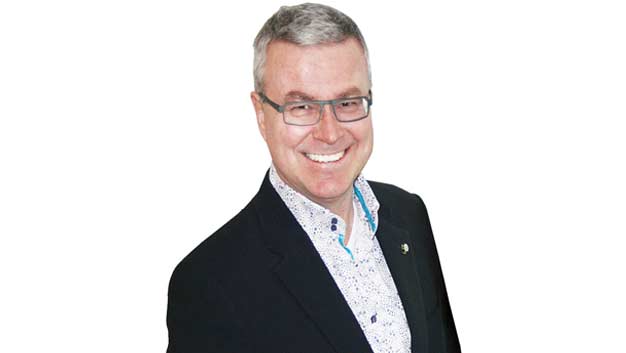International Congress and Convention Association (ICCA)
CEO
Hometown: Amsterdam (adopted, with pleasure!)
College: Various in United Kingdom; now studying at ICCA Congress
International associations and their meetings are a genuine force for good in the world.
As CEO of the International Congress and Convention Association (ICCA) for nearly 13 years, Martin Sirk is constantly staying on top of what’s happening in the industry internationally and looking ahead to what bodes for the future. Based in Amsterdam, where the ICCA office is headquartered, Sirk believes “globalization” is the buzzword of the day, as associations look to expand and remain competitive.
Gone are the days when associations could count on regional monopolies and draw people merely based on geography. Increasingly, they face competition from everyone, from those with a technology lift to commercial operators and self-organizing groups, he says. And that’s just the beginning of what’s happening in the international meeting space, Sirk says.
Bottom line: “The world is now much smaller and competition is more global,” he says.
Here are a few trends that Sirk sees:
- Market leaders are no longer waiting to bid on conferences. Instead, they are creating new international events.
- “They are forming innovative new partnerships and consortia” that lead to clients joining smaller networks.
- “They’re exploiting big data tools and designing new citywide structures that integrate all forms of city marketing, including inward investment, university development strategies, sports and cultural events, marketing, as well as traditional leisure tourism and meetings.”
- They’re bringing in new staff who have “a raft of new technological skills and awareness,” and can exploit new emerging marketing and research tools. Those include staff with medical training if, for instance, they’re focusing on health-care meetings and those with psychology training if they’re into meeting design.
But while the world is shifting, some things have not changed.
Some, for instance, worry that technology such as video conferencing will one day replace meetings. While smaller, more routine meetings may increasingly go technical, it’s hard to imagine that anything will ever completely replace physical meetings.
“Face-to-face is vital for building trust, for generating serendipitous connections and for larger gatherings in general,” he says. “A hybrid meeting is now just a normal meeting, not something special or niche.”
Since ICCA began in 1963, it has encouraged its members to share information, Sirk says.
“First-timers are astonished by the open and friendly business culture that they experience at the Congress, given that there are typically 70 nationalities present,” he says.
Since taking the helm, Sirk has seen ICCA grow from 600 to 1,000 members and add offices in North and Latin America, the Middle East and Africa.
And despite the financial crisis of 2007−08, the organization has grown every year and its retention rate has stayed consistently between 92 and 93 percent, he says.
All this growth has happened while the industry has shifted dramatically from tourist-centric strategies to strategies centered on economic development and intellectual capital, he says.
Sirk, who got his start in the international meeting space as a member of ICCA, is happy to share tips for planners staging international meetings. His suggestions may not always seem intuitive, but he says they work:
- “Don’t imagine you’re running one meeting for 1,000 delegates; think of creating the best environment and framework within which 1,000 meetings can take place inside delegates’ heads.”
- “Start paying attention to delegate psychology, rather than just logistics.”
- “Always provide choice—of sessions, of methods of learning, of what to eat. One size never fits all.”
- “Be prepared to annoy some delegates: accepting change isn’t easy, but it is essential. Trying to keep everyone happy stifles innovation and creative new ideas. Sometimes the process of gaining new knowledge is a little painful. Delegate satisfaction ratings never give the full story of a meeting’s effectiveness.”
As for ICCA’s future, Sirk has great confidence. “We’re going to continue to focus on what we do best: providing world-class services related to the international association meetings sector, and aim to get even closer to the planners and association decision-makers.
“International associations and their meetings are a genuine force for good in the world.”




